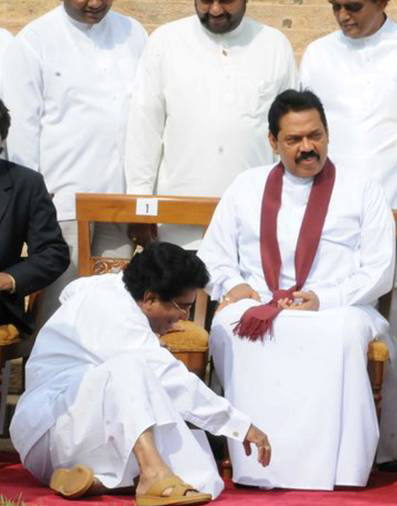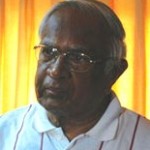A Brief Colonial History Of Ceylon(SriLanka)
Sri Lanka: One Island Two Nations
A Brief Colonial History Of Ceylon(SriLanka)
Sri Lanka: One Island Two Nations
(Full Story)
Search This Blog
Back to 500BC.
==========================
Thiranjala Weerasinghe sj.- One Island Two Nations
?????????????????????????????????????????????????Wednesday, December 31, 2014
The Hybrid Features Of The Present Constitution Must Be Removed

The most important feature of the Executive Presidential form of
government which distinguishes it from the Westminster form is that the
Executive is separated from the Legislature and the Judiciary and the
separation of powers is followed down the line. It is not only the
Executive President who is separated from the Legislature. It includes
all his Ministers as well. The Executive President appoints his
Ministers from outside the Legislature – the Parliament. This is seen in
the U.S Presidency. In France which also follows the Executive
Presidency Ministers can be appointed from Parliament but they cease to
be voting members in Parliament although they could sit in Parliament.
President J.R J with
all his political maturity and experience failed to appreciate the need
for a strict separation of powers to safeguard freedom. He adopted the
practice of appointing only Members of Parliament as his Ministers and
they continued to exercise their votes in Parliament. This gave the
opportunity to MR to
buy over all the MPs in Parliament by appointing them as Ministers
ignoring the administrative rationale for the appointment of Ministers.
 President
J.R J crated a hybrid form of government unknown to political science
in a liberal democracy. He thus dropped the principle of separation of
powers and failed to adopt the principle of drawing Ministers from
outside Parliament which gave the President the choice of appointing
competent Ministers with administrative experience and modern knowledge.
These are the indispensable features and advantages of the Executive Presidency.
President
J.R J crated a hybrid form of government unknown to political science
in a liberal democracy. He thus dropped the principle of separation of
powers and failed to adopt the principle of drawing Ministers from
outside Parliament which gave the President the choice of appointing
competent Ministers with administrative experience and modern knowledge.
These are the indispensable features and advantages of the Executive Presidency.
Why is it necessary to have competent
Ministers and can we obtain them by confining the selection to MPs?
Because modern government is complex. This point was explained by
President Wilson to justify the scrapping of the spoils system in USA
where officials were appointed on political patronage. It was abolished
in 1883. Persons who are appointed as Ministers should have a knowledge
of modern economics science and even modern technology. They must also
have experience in managing a large enterprise. Do our elected MPs have
such knowledge and management experience? Most of them lack modern
knowledge since in 1956 the country sought a revival of our ‘glorified’
traditional past. English as a medium of instruction was done away with.
Language is not only a mode of communication and learning but also
transmits social moral and cultural values. So we lost the understanding
of liberal values and ignored their historical development through the
1688 Glorious Revolution in England and the 1789 French Revolution. We
have failed to instruct the youth in these values and instead a half
baked Marxist doctrine is imparted. So the JVP still believes in Marxism
despite its failure and abandonment in Russia and China which have
opted for free market economies or Capitalism. Our politicians are from
rural backgrounds ignorant of modern knowledge. Are such MPs suitable
for appointment as Ministers in a modern State?Read More

